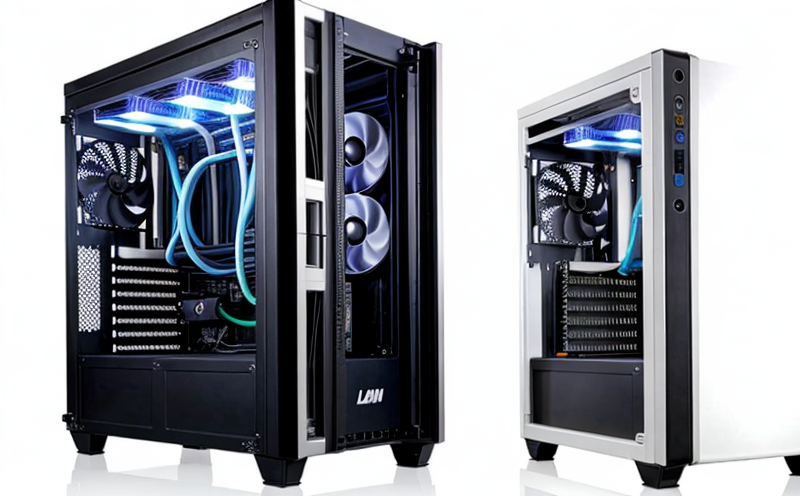DIN EN 14790 Radiator Output Verification
The DIN EN 14790 standard provides a comprehensive framework to verify the output of radiators used in heating systems. This standard is particularly important for ensuring that radiators meet their specified performance and capacity, thereby delivering reliable and efficient heating solutions.
Performance verification under this standard involves multiple stages, including static and dynamic testing conditions. The static test assesses the radiator’s heat output at various water temperatures without a pump, while the dynamic test evaluates it with a pump in circulation. This dual approach ensures that radiators are tested both in isolation and within a complete heating system.
The standard specifies precise measurement methods to ensure accurate results. Temperature sensors are placed strategically around the radiator to capture temperature variations at different points. These sensors provide real-time data on heat transfer efficiency, which is crucial for verifying compliance with the specified performance criteria.
For static tests, the water supply and return temperatures must be controlled according to the standard’s specifications. The flow rate of the test fluid is also critical; it should match the design conditions of the radiator. Dynamic testing requires a pump that can simulate real-world operating conditions accurately. The pump speed and pressure are adjusted to ensure the radiators are tested under representative conditions.
The acceptance criteria for DIN EN 14790 are based on the expected performance levels, which are defined in the design specifications of each radiator model. Any deviations from these criteria may indicate issues with the radiator’s manufacturing or design. Compliance with this standard ensures that radiators meet their intended performance and capacity, thereby enhancing overall system efficiency.
The testing process is meticulously documented to ensure traceability and reproducibility. Detailed records are kept of all test parameters, including temperature readings, flow rates, and pressure levels. These records form the basis for reporting the results of DIN EN 14790 verification tests.
Compliance with this standard not only ensures that radiators perform as expected but also supports sustainability goals by promoting energy-efficient heating systems. By verifying radiator output, manufacturers can demonstrate their commitment to quality and environmental responsibility, which is increasingly important in the HVAC sector.
Industry Applications
| Application | Description |
|---|---|
| Residential Heating Systems | This standard is crucial for verifying the performance of radiators in residential heating systems. Ensuring that each radiator meets its output specifications guarantees consistent and efficient heating, which enhances customer satisfaction. |
| Commercial HVAC Installations | In commercial settings, DIN EN 14790 verification is essential for large-scale HVAC installations. It ensures that radiators contribute effectively to the overall heating capacity of the system, supporting energy-efficient design. |
| New Construction Projects | During new construction projects, this standard helps in selecting and testing radiators that meet the required performance levels. It ensures that the chosen radiators will perform optimally within the building’s heating system. |
| Retrofit Installations | In retrofit installations, DIN EN 14790 verification is used to assess the performance of existing radiators. This ensures that any modifications or replacements are made with radiators that meet current efficiency standards. |
Why Choose This Test
The DIN EN 14790 Radiator Output Verification is a critical component of ensuring quality and compliance in the HVAC sector. By adhering to this standard, manufacturers can demonstrate their commitment to producing reliable and efficient heating solutions. This not only enhances product reputation but also supports regulatory compliance.
The test provides valuable insights into the performance of radiators under controlled conditions. It helps identify any discrepancies between actual output and design specifications, allowing for timely corrections in manufacturing processes. This leads to improved product quality and reliability, which is essential for maintaining customer satisfaction.
From a regulatory perspective, compliance with DIN EN 14790 ensures that radiators meet the latest performance standards set by international organizations. This supports the HVAC industry’s efforts to promote energy efficiency and sustainability. By choosing this test, manufacturers can stay ahead of evolving market demands and regulatory requirements.
The data generated from DIN EN 14790 verification tests is essential for quality assurance programs. It provides objective evidence that radiators meet their design specifications, which is crucial for maintaining a high standard of product quality. This data also supports continuous improvement efforts within manufacturing processes.
Customer satisfaction is significantly enhanced when manufacturers adhere to this standard. Customers can trust that the radiators they purchase will perform as expected, leading to increased customer loyalty and repeat business. Additionally, compliance with DIN EN 14790 can contribute positively to a company’s brand image, positioning it as a leader in quality and reliability.
In summary, choosing DIN EN 14790 Radiator Output Verification is not just a technical requirement but also an investment in product quality, customer satisfaction, and regulatory compliance. It ensures that radiators are reliable, efficient, and meet the highest standards of performance.
Customer Impact and Satisfaction
The impact of DIN EN 14790 Radiator Output Verification on customers is profound. By ensuring that radiators perform as expected, this test enhances customer satisfaction in several ways:
Firstly, reliable performance means that heating systems operate efficiently, leading to cost savings for both residential and commercial users. This reduces energy consumption and associated costs, which is a significant benefit for customers.
Secondly, consistent output from verified radiators ensures that heating systems are dependable year-round. This reliability is crucial for maintaining comfortable living or working environments, thereby enhancing customer comfort and satisfaction.
Thirdly, compliance with this standard supports regulatory requirements, which can lead to increased confidence in the brand among customers. This trust fosters long-term relationships between manufacturers and their customer base.
Forth, verified radiators contribute positively to environmental sustainability efforts. By promoting energy-efficient solutions, DIN EN 14790 verification helps customers make environmentally responsible choices, which aligns with growing consumer preferences for sustainable products.
Lastly, the transparency and traceability provided by this test ensure that customers receive high-quality products backed by reliable data. This enhances customer confidence in the brand’s commitment to quality and reliability.





